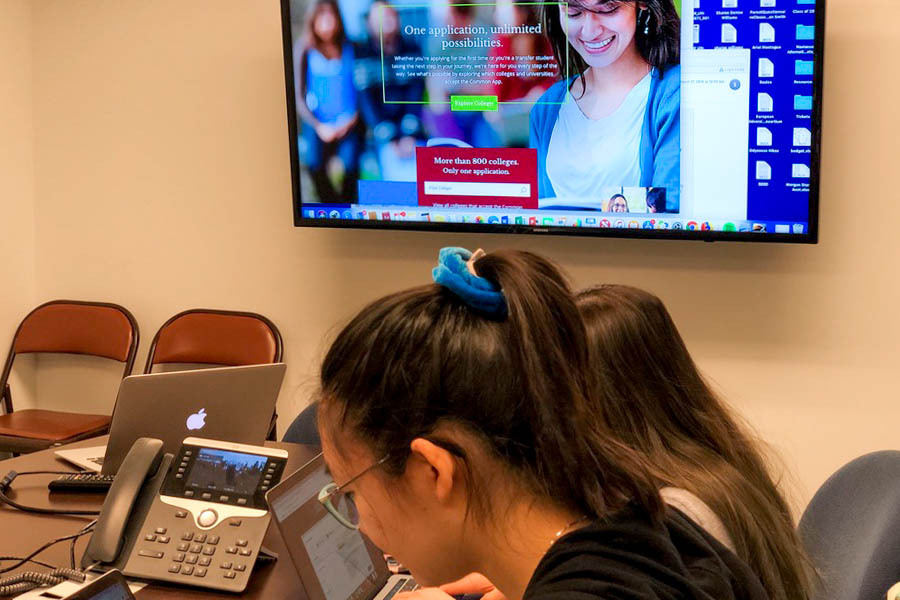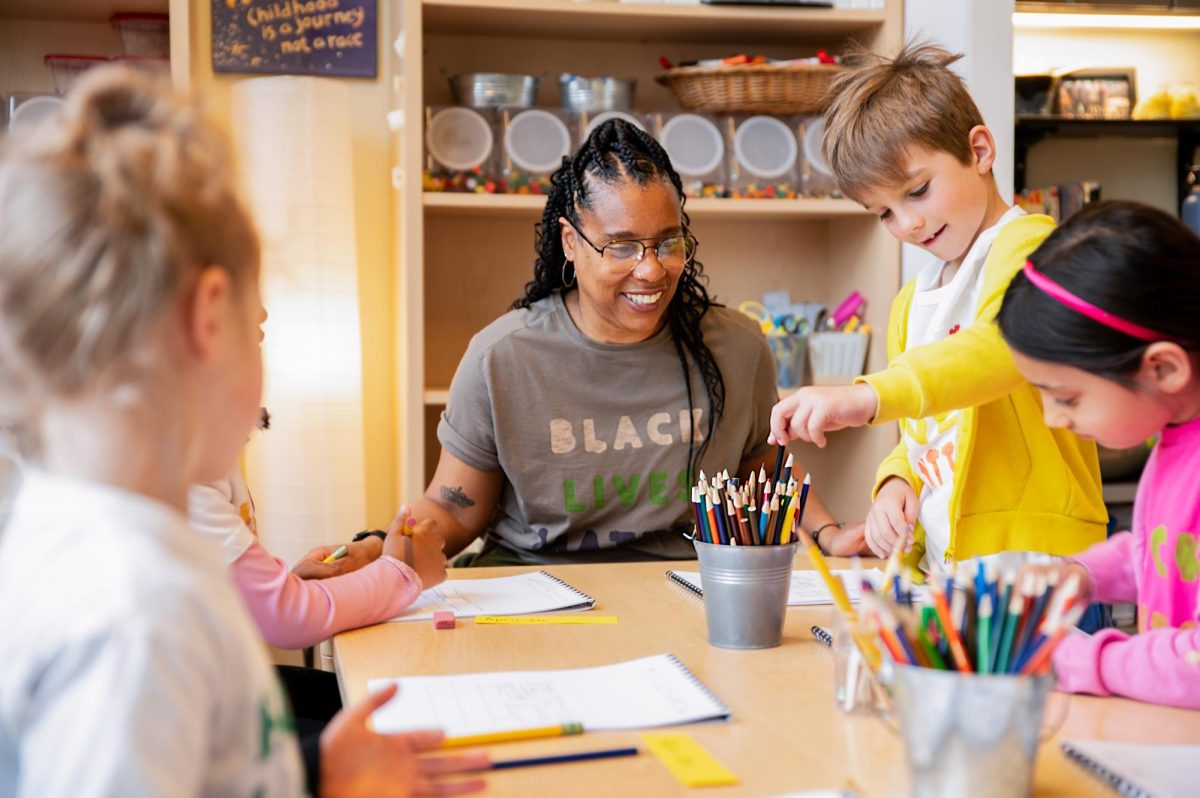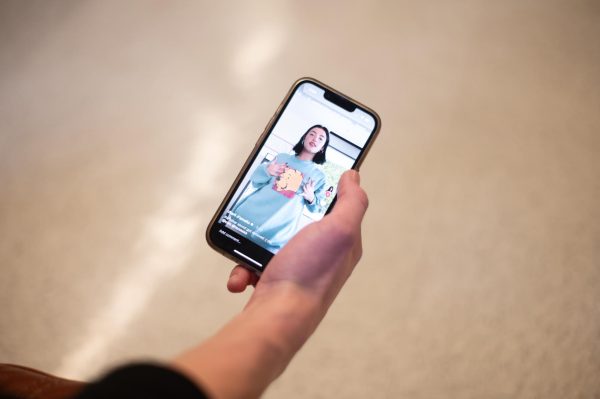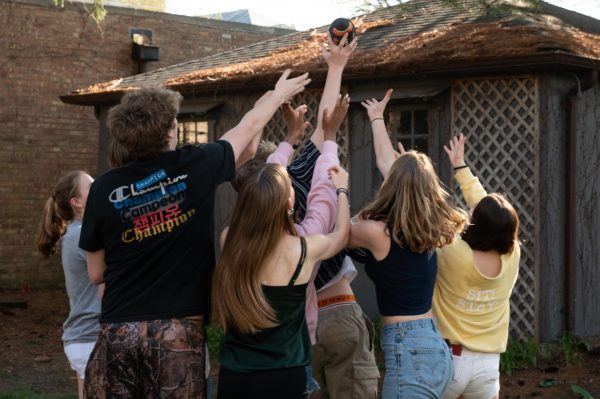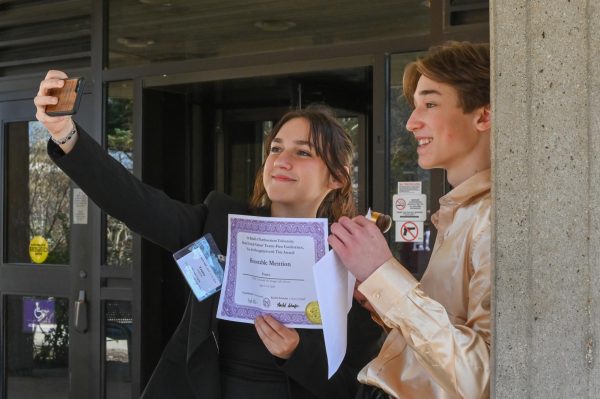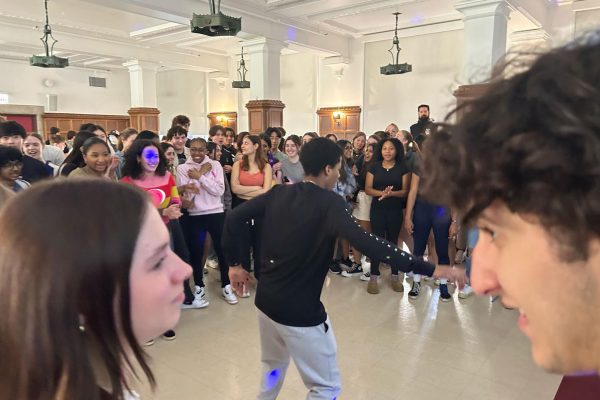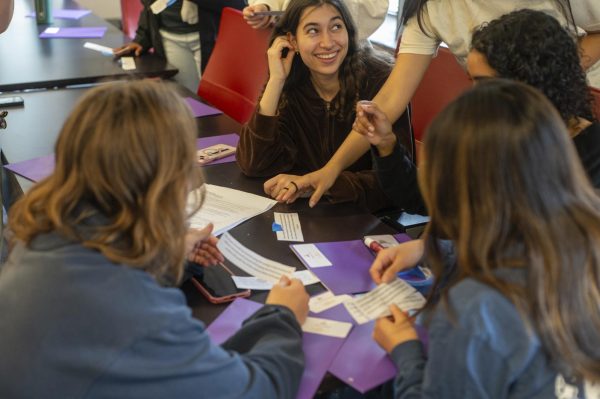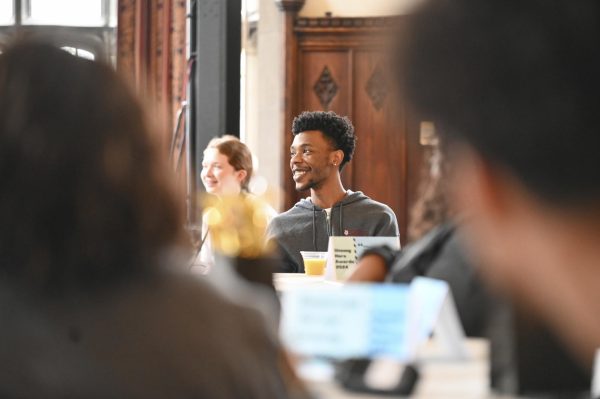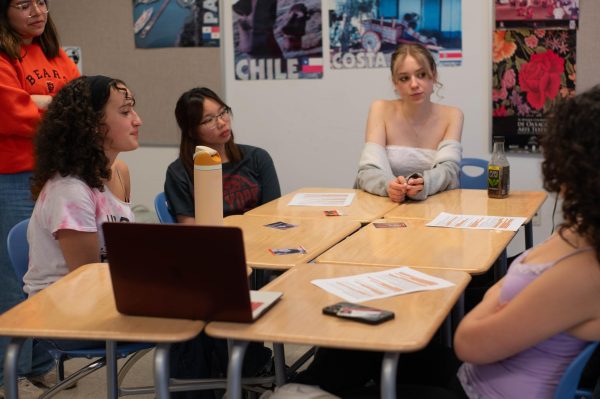Juniors begin college process remotely
Odysseas Nikas
Members of the class of 2020 work on their college materials in the conference room of the Learning and Counseling suite. The class of 2021 is having to navigate this process remotely on account of COVID-19.
April 19, 2020
On March 14, junior Katja Edwards woke up ready for her standardized test. Upon arriving to her testing location, she was let in the building and, after a few minutes, was told the test was canceled due to COVID-19.
“I signed up for another test, but it looks like that one is going to be cancelled too,” Katja said. “Now, I’m just waiting, but now something I thought I would do in junior year is pushed to senior.”
Katja’s lack of certainty around testing is a shared experience for many of her peers. For any class, college applications are a complex dance, but for the Class of 2021 it will have an unprecedented look with a spring of canceled standardized tests and campus visits as well as months of remote learning.
College counselor Patty Kovacs said one of the best remedies to such unpredictability is trust and patience.
“It is an age of uncertainty, and I wish I could give you certain answers, but it’s still unfolding and we need to see what happens as colleges get themselves organized,” Ms. Kovacs said.
One change colleges have been making is the adjustment to standardized test requirements. For many juniors, the spring was the key time to test.
To help deal with this uncertainty, Ms. Kovacs advised, “People have to trust that if the junior class can’t test and retest, everyone is going to be in the same boat, and it is up to the college to figure out their own latitude of how to deal with it.”
In fact, Ms. Kovacs says the College Board and the ACT will probably get an online test into the hands of students.
In the meantime, Ms. Kovacs encourages students to give their all to school as they would during synchronous learning for both their grades and letters of recommendation.
“You need to proceed with school and your [recommendation] letters in the same way as if your teacher is sitting in front of you,” Ms. Kovacs said. “Your teacher will have this new level of information to talk about, which is your persistence and engagement during this crisis time, and for admissions officers, that tells them what you would be doing if you were a freshman right now.”
For a junior, the best thing to do is to go onto an individual college’s website and sign up as a prospective student and get on their mailing list
— Patty Kovacs, College Counselor
Ms. Kovacs also recommends that juniors continue to be active in pursuing their interests in colleges, despite not being able to visit campuses.
For junior Ramsey Radwan, spring break was an ideal time to visit college campuses, but that was all sidetracked as schools closed down.
“In order to figure out the vibe, in general, you need to be there to really understand who the students are, how they feel and what sort of environment they are living in,” Ramsey said.
Ramsey is hoping to reschedule his visits for the summer, but until then he is taking virtual tours.
“They’re not bad,” he said. “ It’s definitely not the same as being on campus, but it’s a good substitute for now.”
A campus tour helps to understand the schools in a tangible way, however, another appeal is how touring demonstrates interest to a school and its office of admissions.
“For a junior, the best thing to do is to go onto an individual college’s website and sign up as a prospective student and get on their mailing list,” Ms. Kovacs said.
To Ms. Kovacs, especially during times like these, it is important to remember that everyone is in the same boat, including admissions officers.
“Colleges are made up not of ogres in the admissions office, but these are kind and caring and thoughtful people who are vested in your futures, and they still need to bring in a future class.” Ms. Kovacs said. “Everyone from their end, from our end, from your end, we’re gonna try to make it work and it might not exactly have the same choreography that the other admissions dances had, but it’s going to be your own.”



